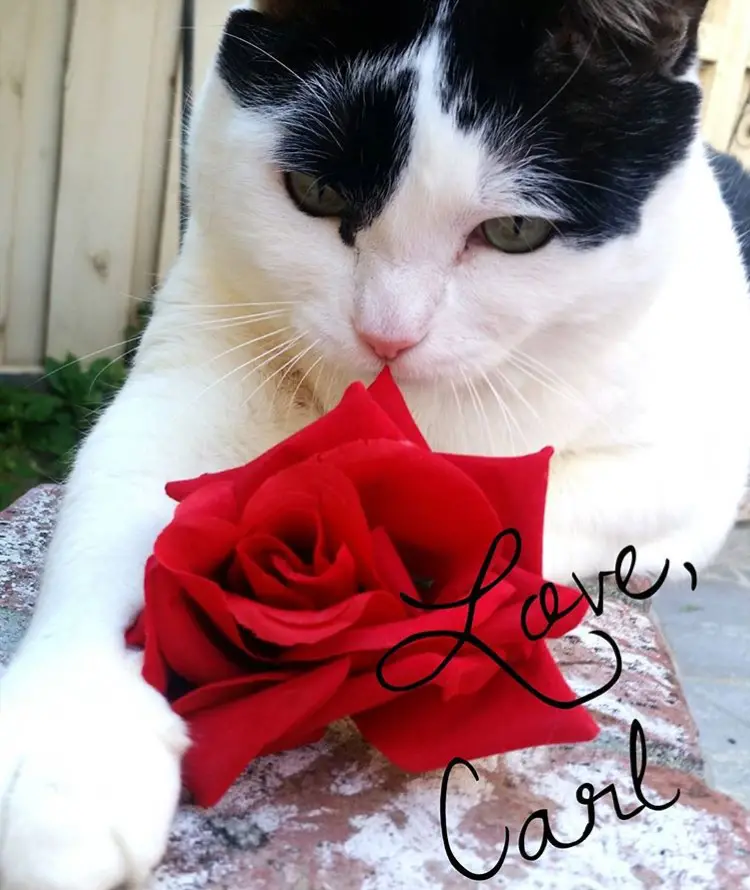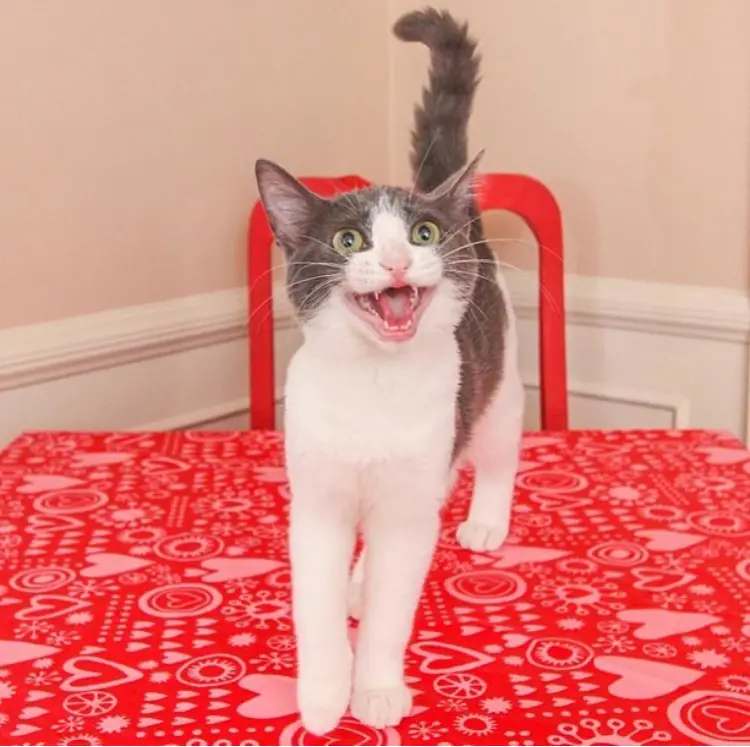By Chelsy Ranard
For cat people it’s no question: the whiskers, the fuzzy faces, the meows, and the head nudges let us know our cats are definitely beneficial to our mental health. The rest of the world, however, has some catching up to do. Those who don’t have cats are missing out on the cats’ appeal. The reality is that behind all of the warm cuddles and purring is an animal that improves mental health by decreasing stress, offering companionship, purring the pain away, and serving as a therapy animal.
Cats are Fuzzy Stress Relievers
Adopting a cat is basically like adopting a walking, meowing, sassy, stress reliever. Cats are shown to relieve stress in a number of different ways by simply being themselves. When you’ve had a hard day, coming come and spending some time petting a fuzzy feline can cause your body to produce stress reducing hormones. When you do so, your heart rate and blood pressure decrease and your anxiety levels normalize.
Many people benefit from a relationship with a pet. Both cats and dogs – along with a slew of other stress reducing activities, have helped college students during finals week because they offer powerful stress relieving properties. Hospitals and nursing homes are other common places where cats are helpful to patients in stressful settings. Sitting with your cat and petting them can have a lasting, positive effect on overall health.
Cats Make Great Companions
An added benefit to having a cat is the feeling of companionship, and how that friendship positively affects mental health. Having a cat can help people with feelings of loneliness and provide purpose. Having an animal react to you, rely on you, and love you in such a simple and pure way can elevate positive mental health. The relationship established with a pet is one that offers predictability, encouragement, and positivity, which can be a big help for many that may experience negativity within human relationships.
In the same way that friendships, family, and romantic relationships can prove to be positive (as long as they are healthy), animal relationships can also provide an abundance of mental health benefits. Whether a person suffers from mental health issues or not, having a relationship with an animal is rewarding. Knowing your furry little one is waiting for you at home can give purpose to one’s life and combat loneliness. And as long as you offer plenty of gentle petting and yummy treats your cat will reward you with head boops, purrs and lap naps. Human and cat are both happy.

Cats Have the Healing Power of the Purr
A cat purrs within a range of 20-140 Hz which is known to be medically therapeutic for illnesses in humans. A cat’s purr can not only lower stress it can also help labored breathing, lower blood pressure, help heal infections, and even heal bones. For some it can be difficult to legitimize the positive effects on mental health that a cat can offer. But studies have shown and proven the physical effects are real. So it isn’t a far stretch to imagine that if purrs can help heal bones, they can positively impact the effects of stress and anxiety. Any cat owner will tell you how relaxing it is to pet a sleeping cat and listen to their purrs – it’s not just in your head (so to speak).
Cats Make Great Therapy Animals
Therapy animals are highly effective in so many settings, some of which were already discussed. In schools, hospitals, and addiction centers, pets are routinely used for therapy. Horses are popular in addiction settings as a therapy animal due to their need for trust and creating a bond. Dogs are popular therapy animals for soldiers suffering from PTSD – they offer similar calming effects that cats have on their owners. Those that suffer from dementia, have experienced sexual assault, or even those that suffer from seizures use and appreciate therapy animals on both an emotional and physical level.
Cats are beneficial to us from a mental and physical health perspective. Because of a cat’s ability to calm us, lower our stress levels, and offer companionship, they are great therapy animals for a wide variety of uses and patients. While a cat isn’t a substitution for medication or therapy, there’s no denying the subtle positive effect on mental health.
Cats are loving and affectionate animals – despite having a reputation for being aloof and headstrong. Every cat is different, but for cat-people especially, we love and celebrate their unique personalities and idiosyncrasies. Little did we know, cats help our mental health just by being themselves. Their ability to reduce stress, offer companionship, heal with purrs, and offer their services as therapy animals makes them the ideal champions for mental health. So next time your cat rubs its body against you, give her a loving pat and thank her for her role in helping your mental health stay positive.
Chelsy Ranard is a writer from Montana who is now living in Boise, Idaho. She graduated with her journalism degree from the University of Montana in 2012. She enjoys napping with her cat, throwing a Frisbee with her pup, and volunteering at Simply Cats in Boise.
